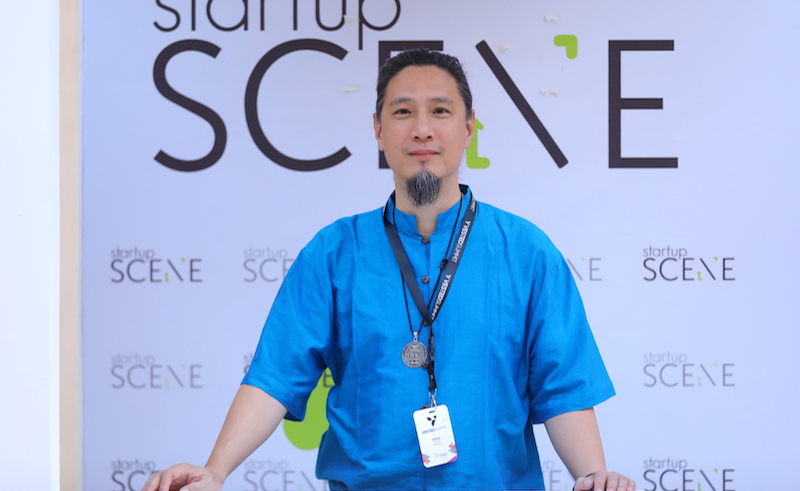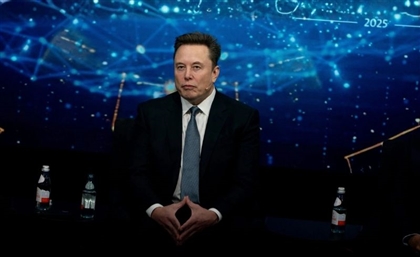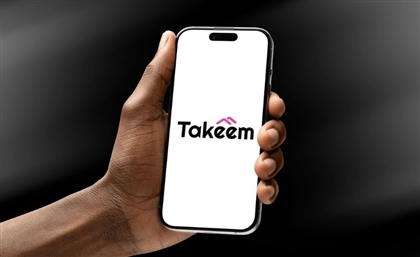How Can We Make AI Conscious? We Ask the Engineers of the Future
Speaking at Vested Summit, which took over Egypt's Town of El Gouna last week, Hong Kong-based De Kai Wu, Owner of Future Design Station Liza Lichtinger and Affectiva's Data Processing Engineer Radwa Soliman explain how we can"parent" Artificial Intelligence.

“The Artificial Intelligence (AI) we have now is nowhere near what a three-year-old can do,” says HKUST’s Professor of Computer Science and Engineering De Kai Wu at his opening speech at Vested Summit last week in El Gouna. Are we making a three-year-old make our decisions? This was the question on everyone’s minds as they sat in front of the professor, who looks like he just came out of a Hollywood science fiction movie.
AI is the theory and development of computer systems to perform tasks that normally require human intelligence. These include visual perception, speech recognition, decision-making, and translation between languages. In fact, De Kai is the AI engineer behind Google Translate and Siri.
Before joining HKUST in its founding year in 1992, De Kai studied at UC Berkeley for his PhD in Computer Science as well as a postdoctoral fellowship at the University of Toronto. He also holds an Executive MBA from Kellogg (Northwestern University) and HKUST, and a BS in Computer Engineering from UCSD. He was selected by the Association for Computational Linguistics as one of only 17 scientists worldwide to be awarded the honour of founding ACL Fellow in 2011.
After his talk about developing AI as one parents their children, coining the term “Artificial Children”, we were intrigued to ask De Kai how can engineers make those “Artificial Children” as conscious and accountable as human beings.

“I am an AI researcher and I built all sorts of machine learning systems that are based on new mathematical models to do stronger kinds of machine learning, stronger ways to be aware of the surroundings of the contacts and what it means,” De Kai tells Startup Scene ME, adding that AI entrepreneurs and veterans like himself are taking steps toward the technology itself to become more and more conscious. "On the other hand, we want to shift the focus of the work that we’re producing and make it more creative," he says. "Automation is making all sorts of more manual laborious grunt work things that we don’t have to do, things we - therefore- can take for granted. Because AIs are becoming much stronger at this sort of reasoning and imaginative and creative processes, instead of us doing it by ourselves, we should be conscious of the fact that we can co-create, the work that we’re producing, not only with humans but also with our artificial children. So, it becomes a joint effort."
San Francisco and Hong Kong-based Liza Lichtinger, who has crafted the personality and sequencing of robotics and behavioral software while running Future Design Station in San Francisco, also joined De Kai in a panel about AI consciousness at Vested Summit. Lichtinger is a Psychologist, Wellness Expert and Digital Prodigy on a personal mission to be sure the world's advances in technology are ethically aligned with the wellness of humanity. She has also made it to Ross Dawson's list of world's top female futurists, and enjoys mentoring graduate scholars on demonstrated success in Health and grade school students in programming such as with STEM and FIRST robotics. she provides scholars use cases for their research or product, in HFD incentivised behavioural exercises in virtual scope of Decision Making and Resilience. She taught a workshop at Vested Summit on Investment: The role of ethics in decision making and AI.

"It is a very interesting question when we haven’t yet figured out how to make humans conscious," she says. Taking the psychological aspect of the idea of consciousness, Lichtinger tells Startup Scene that if there’s a question of wanting to make the AI technology conscious, one must first figure out what it means to be conscious.
"What it comes down to is what’s aware, what’s alive, what’s real and what’s not," she breaks it down. The futurist elaborates that what we can do is to focus on what humans think is real, aware, and where they direct their focus and attention, and therefore what becomes real and meaningful to them.
It is a very interesting question when we haven’t yet figured out how to make humans conscious.
"It is my view and several other people’s views that stem from this kind of line of thinking, that first it has to come from the meaning that we’re putting on to the machines; in explanation: ethical models," she says. "And honestly it starts with the humans."
The more we can get people to come together creatively to understand these kinds of ideas, the more you can have this kind of people create technology that is going to mimic that and be a more meaningful tool that couples in as matched with the human awareness that’s building it.
Moving to the more technical part of the consciousness process, Affectiva's Data Processing Engineer Radwa Soliman walks us through the technicalities of parenting De kai's Artificial Children, and make AI technology more conscious and aware. Soliman is a young Cairene entrepreneur; she won first place in Hult Prize AUC and interned at Google as a software engineer in Switzerland.

"To make AI conscious we need to make the data conscious," Soliman starts. "We have to make sure that our sources and the people we source the data from are all aware of the usage of this data and the channels that we're taking it to."
The engineer adds that we also need to make sure that the application is conscious and it focuses on the bettering of the human behaviour. "One example is using the AI in bettering the healthcare sector, making cities smarter, and more adaptable to human behaviour, and using it for a design that is more human-centric," she says. The last step is focusing on making sure that the architecture and the way that the AI algorithm is designed in a conscious way; which guarantees that there are no security breaches that can happen to any of the pipelines of the data, making sure that it follows the protocols and making sure that it’s used in a way that betters the human society.
Photography by @MO4Network's #MO4Productions
Photographer: Ashraf Hamed.






















